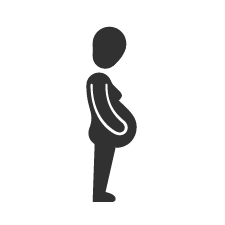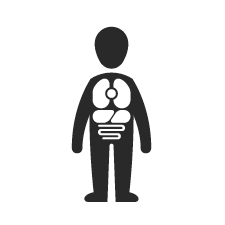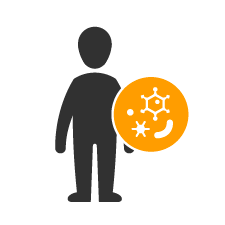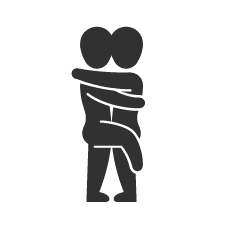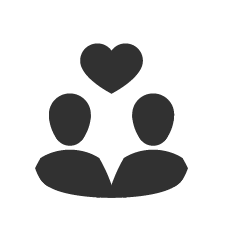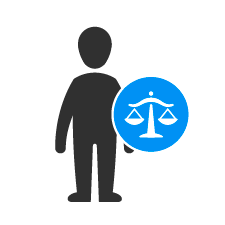Shortly after giving birth
- The midwife or nurse weighs and measures your baby.
- He or she cleans and bandages the navel.
- The baby's breathing, skin colour, muscle tension, heartbeat and the response to stimuli are examined.
- The midwife / nurse dresses your baby or wraps it in a blanket.
- Then you get to hold your baby. If you have had a caesarean section, your partner will be able to hold the baby until your wound has been treated.
- If your baby starts to look for the breast, you can breast-feed for the first time. Your midwife can help you.
- You will be washed and brought to your room together with your baby. You and your baby can stay in the hospital for a few days and be cared for. In many hospitals, your partner can also spend the night there.
- You can also decide to go home with your baby a few hours after the birth. You can do this if you are doing well and your baby is healthy.
In the following weeks
- In the first weeks after birth, there are regular early detection tests for your baby. The first examinations are still in the hospital. Later you will go to a paediatrician. You will get a "yellow booklet", into which all the child's early detection tests will be entered.
- A few days after birth, the doctor will carefully examine your baby. The doctor will examine the baby's heart and lungs, body, spine, reflexes, hips, eyes...
- Your baby may lose weight in the first week after birth, even if you breast-feed or feed it regularly. This is normal.
- The baby will get vitamin K drops.
- In the second early detection test the baby will be tested for rare metabolic diseases and cystic fibrosis (a lung and bowel disease). The doctor, the midwife or a nurse will take a small blood sample.
- You can also have the baby's hearing checked (neonatal hearing screening).
- After about eight weeks the baby will get some vaccinations, for example for polio.

